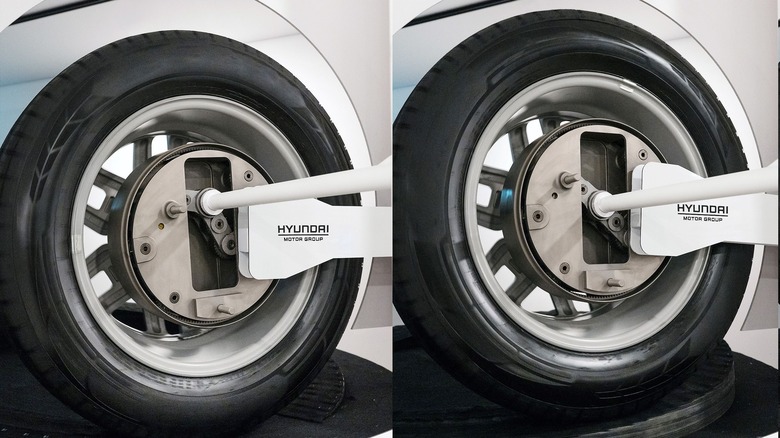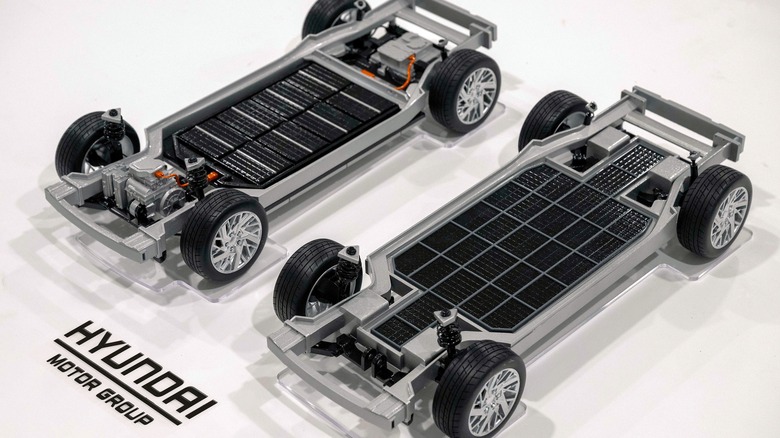If This New Hyundai Wheel Tech Works, Its Electric Cars Could Get A Big Range Boost
In a normal gas-powered car, the engine delivers power to the transmission, which then delivers power to the wheel or wheels via a driveshaft in a rear-wheel drive car or a constant velocity (CV) joint in a front-wheel drive car. That process has worked well enough for the last century or so. It's relatively simple yet inefficient for both physical space and maintaining mechanical efficiency. Electric vehicles made the process more efficient by essentially eliminating the transmission altogether and replacing it with one, two, three, or even four individual electric drive units that consist of an electric motor and a reduction gearing system that helps transmit usable energy to the wheels.
Hyundai is upping the efficiency ante with the introduction of its Uni Wheel system at the aptly named "Uni Wheel Tech Day" event. Instead of the reduction gear mechanism sitting inside the car's chassis, Hyundai put it right inside the wheel. This has the potential to greatly open up (figuratively and literally) EV platform architecture.
Saving weight and saving space
Hyundai claims that its Uni Wheel system lends itself to better weight distribution and handling mechanics than an EV using in-wheel motors. In-wheel or hub motors have been touted in the past as a potential space-saving technology. The Uni Wheel still gives EV platforms much-needed space to build on while retaining predictable handling and avoiding unnecessary weight within the wheels, therefore increasing motor efficiency. This extra boost in efficiency has the added benefit of potentially adding more miles to a charge.
This technology likely won't appear in the next iteration of the Hyundai Ioniq 5 or Kia EV6. Although this technology is eventually destined for consumer vehicles and even performance EVs, Hyundai and Kia are pioneering this technology to be used in what it's referring to as "Purpose Built Vehicles." Such vehicles are taxis, self-driving cars, or commuter vehicles, where interior space is at a premium.
As of now, Hyundai has not yet announced any specific models or vehicle lineups that will feature the technology, but it has the potential to be a huge boon to the automaker's future EV plans.

